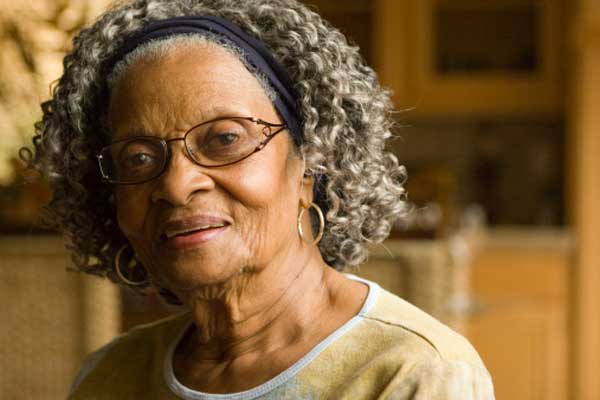Age and Aging
Age has two significant roles in traditional African cultures south of the Sahara. First, respect for age and for the elderly is a universal social ideal. Second, many societies are organized into groups by age, and membership in such groups helps define a person's sense of identity and place in the community. Recent social changes have somewhat weakened these values and practices, but age is still a powerful shaping force in agricultural and pastoralist areas, especially where local communities have a good deal of independence.
Age and Respect
Older people claim a right to the respect of others based on their seniority—they have lived longer than others. They deserve respect because they have acquired wisdom and experience over the years. Younger people have a reason to accept this way of thinking. By showing respect to their elders, they hope to ensure that they will receive respect when they reach that stage of life.
The ideal of the respected elder shapes many African institutions. The extended family is dominated by the senior generation. Elders control property and also grant or withhold permission for younger people to marry. Religious beliefs also reflect respect for elders. Cults that honor ancestors are the highest form of respect for seniority—ancestors are more senior than the oldest living family members. However, the elderly have power within the community because they are closer in age to the ancestors than anyone else.

The high status of older people in African cultures is related to the idea that family growth is good and fortunate. People see large families as a source of security in times of crisis, and they want to leave descendants who will honor them as ancestors. The position of older men in the community is closely tied to this concern with family size and fertility. The power held by older men is reinforced by their control over marriages and also over status of young men. By delaying the marriages of young men, the elders create a surplus of young women. If the elders take these women as second or additional wives, they create large families, which adds to their position in the community.
Another factor involved in the respect for elders is their control of information and resources. Not all older people are respected, however, especially once their abilities decline. But those who skillfully display their knowledge, diplomatic skills, social connections, and ability to perform rituals enjoy high regard. These skills are considered as community assets.
The ideal of respect toward old age does not always match the reality of relations between the generations. Harsh treatment by older men can cause disrespect and anger among younger men, who may engage in behavior that the elders cannot completely control. In addition, where communities are dominated by older men, the women do not always accept their secondary status.
Women and men experience old age differently. Women may continue to gain status and power at an age when older men experience loss. Women build up supportive networks of influence within families and households. These continue throughout their lives. Men, who tend to operate in a more competitive public domain, must eventually give up some of their power in exchange for continued respect by the younger men.
Aging and Age Sets.
Many African cultures view aging not as a steady process but as a series of jumps from one stage to another—often, from youth to adulthood to “elderhood.” INITIATION RITES, ceremonies through which people acquire a new status, mark the transition from youth to adulthood. In some gerontocratic cultures, initiation is a lifelong process during which the elders withhold knowledge and share it a little at a time. This delays the younger people's entry into the highest ranks. The content of the secrets is less important than the privileges that go with the possession of them.
Group initiation is one form of social organization based on age. As young people of similar age go through the process of initiation together, they form a bond or feeling of community that unites the group long after initiation, even into old age.
Another form of social organization is the age set, which involves dividing the community into groups based on age. Senior groups within such systems dominate younger ones, reinforcing the connection between age and authority. In contrast, age mates, or people within a group, experience equality and bond as peers.
One typical example of a society based on age sets is that of the MAASAI people of eastern Africa. Their system was originally military in nature. It placed young men into warrior groups by age with their roles defined according to seniority. The system has survived as the basis of gerontocratic power over young men, the moran, or warriors. Boys must compete with those who are older to be accepted into the next age set of moran.
As moran they remain in limbo for extended periods, neither boys nor full adults. If the elders relaxed their restrictions and allowed the younger men to marry, the older men would lose their control over the women. Eventually, however, the moran are allowed to marry and are also admitted to the society of the elders in something like a second initiation. Not all elders are equal, however. Competition for power continues among the various groups as new sets achieve elder status and older ones are edged out of control.
Societies organized around age systems may regard their own history as a series of age sets. In these societies, the process of aging seems to be halted during periods when family, community, or age-set relations do not change. The occurrence of a significant change—such as a birth, initiation, marriage, or death—brings awareness that everyone is older. At such times, each age set moves forward and power shifts within the community. (See also Death, Mourning, and Ancestors; Family.)